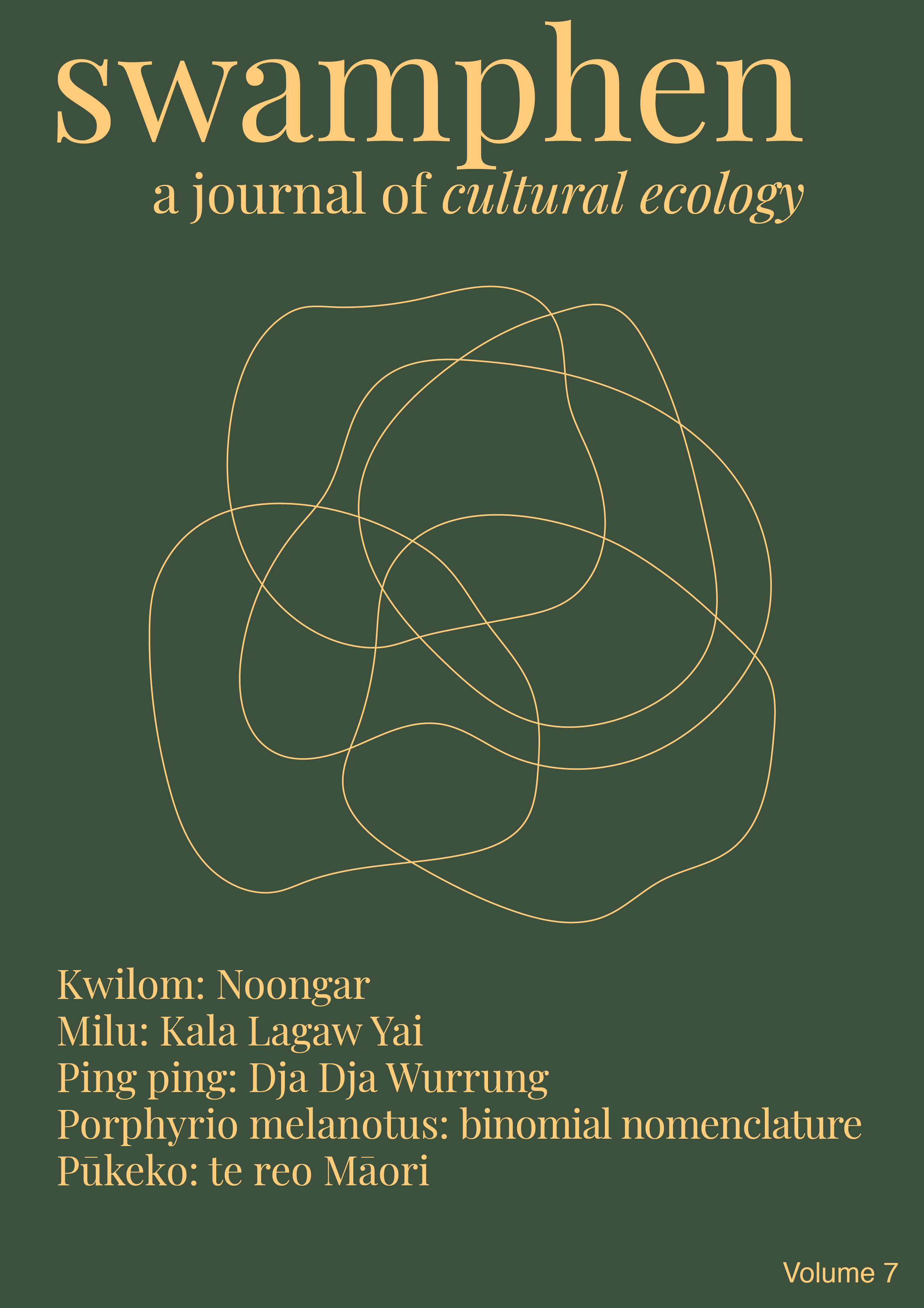The Ecological Poetics of Deborah Bird Rose: Analysis and Application
DOI:
https://doi.org/10.60162/swamphen.7.14365Abstract
In the essay that follows I outline and then respond to the poetic qualities of Deborah Bird Rose’s thinking. Trained as an anthropologist, Rose was a highly original scholar. She pioneered ecological ethnography by focusing on the links between social and ecological justice, in particular with the Yarralin and Lingarra communities in the Northern Territory, and she is a founding figure in the environmental humanities, multispecies studies and extinction studies. Her sustained interest in poetry and the poetic imagination made her ever aware of the power of ‘deep stories’; Rose wanted always to be close to ‘the cadences of the[ir] poetry’ (Wild Dog 16). Unlike many scholars in the humanities, for whom writing and reading are dominated by genres of prose, references to poetry and to contemporary poets are common in Rose’s work, and her writing regularly gestures towards the poetic. Rose’s work is vital for ecological criticism that attempts to grapple with the drastic cultural and climactic changes of this century, particularly for criticism with decolonising ambitions.
Downloads
Published
Issue
Section
License
Authors who publish with this journal agree to the following terms:- Authors retain copyright and grant the journal right of first publication with the work simultaneously licensed under a Creative Commons Attribution License that allows others to share the work with an acknowledgement of the work's authorship and initial publication in this journal.
- Authors are able to enter into separate, additional contractual arrangements for the non-exclusive distribution of the journal's published version of the work (e.g., post it to an institutional repository or publish it in a book), with an acknowledgement of its initial publication in this journal.
- Authors are permitted and encouraged to post their work online (e.g., in institutional repositories or on their website) prior to and during the submission process, as it can lead to productive exchanges, as well as earlier and greater citation of published work (See The Effect of Open Access).

